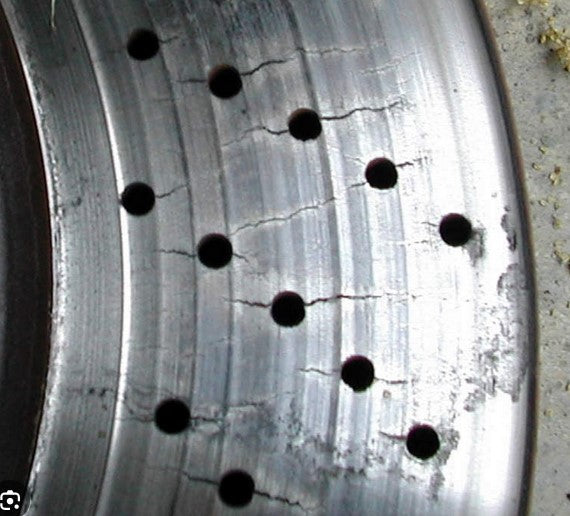630.360.2548

Drilled rotors and cracks
It is a fair bet that virtually all drilled rotors will crack. Eventually those cracks connect and the discs are done. The process of drilling a rotors introduces starting points for fracture. Most manufacturers will attempt to alleviate this somewhat by radiusing the holes to relieve the stress. This works a little.
Porsche took it a step further and on some rotors cast the discs with the holes in to have the metal formed around the hole rather than creating the stress risers. It works better but still ends up with the same issue.
The original reason for drilling rotors was to allow gasses to escape from organic pads for better braking, and secondarily to lighten the rotor itself. With modern compounds there is no out-gassing so no need for the holes. Additionally the same rotor mass can be reduced by proper design. This is why the Alcon slotted rotor is a much better design. It allows shedding of water, pad waste, etc.. through the slot without causing stress in the rotor and dangerous cracking.
Metallurgy also plays into the quality and life of a disc. You can see two discs that look and feel he same. One will cost $100 and seem like a "bargain". The Alcon rotor will stop better and last more than 3x longer in race conditions because of the quality of the design and the alloy used.
